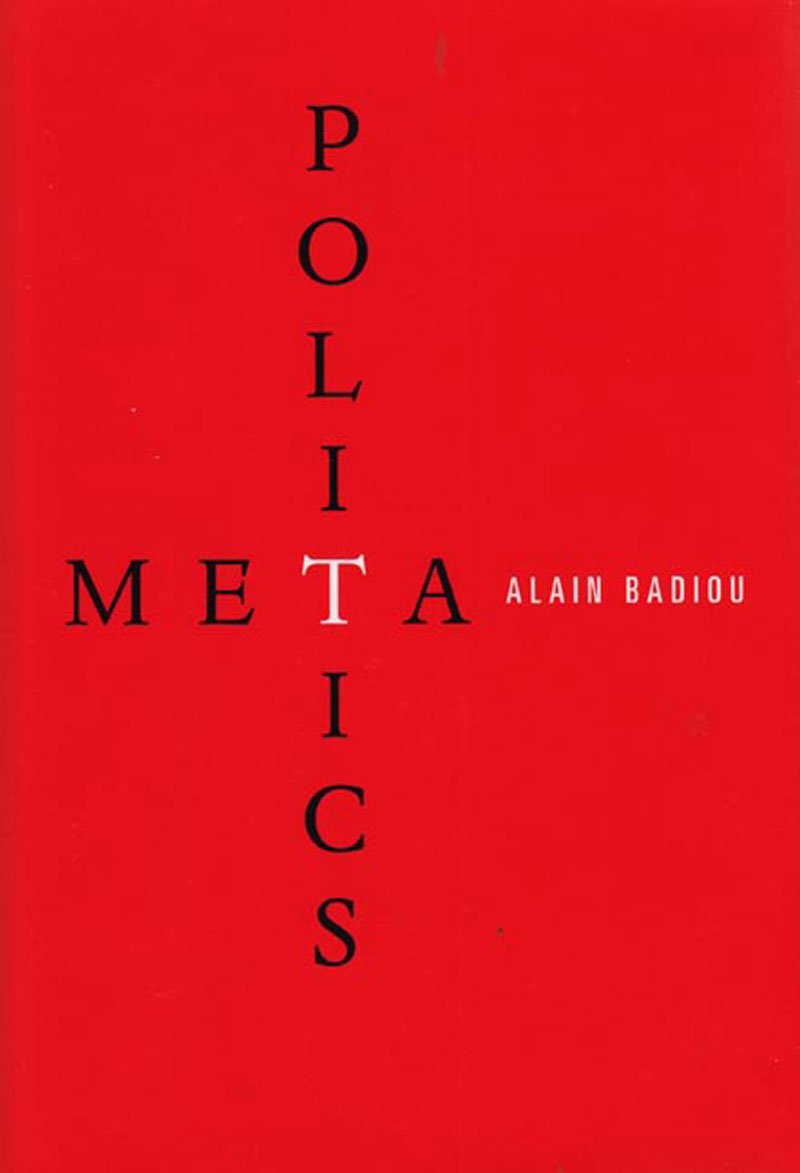Paperback, 159 pages
English language
Published April 17, 2006 by Verso.

Paperback, 159 pages
English language
Published April 17, 2006 by Verso.
In this follow-up to his highly acclaimed volume Ethics, a searing critique of liberalism, Alain Badiou discusses the limits of political philosophy.
Metapolitics argues that one of the main tasks of contemporary thought is to abolish the idea that politics is merely an object for philosophical reflection. Badiou indicts this approach, which reduces politics to a matter of opinion, thus eliminating any of its truly radical and emancipatory possibilities.
Against this intellectual tradition, Badiou proposes instead the consideration of politics in terms of the production of truth and the affirmation of equality. He demands that the question of a possible “political truth” be separated from any notion of consensus or public opinion, and that political action be rethought in terms of the complex process that binds discussion to decision.
Starting from this analysis, Badiou critically examines the thought of anthropologist and political theorist Sylvain Lazarus, Jacques Rancière’s …
In this follow-up to his highly acclaimed volume Ethics, a searing critique of liberalism, Alain Badiou discusses the limits of political philosophy.
Metapolitics argues that one of the main tasks of contemporary thought is to abolish the idea that politics is merely an object for philosophical reflection. Badiou indicts this approach, which reduces politics to a matter of opinion, thus eliminating any of its truly radical and emancipatory possibilities.
Against this intellectual tradition, Badiou proposes instead the consideration of politics in terms of the production of truth and the affirmation of equality. He demands that the question of a possible “political truth” be separated from any notion of consensus or public opinion, and that political action be rethought in terms of the complex process that binds discussion to decision.
Starting from this analysis, Badiou critically examines the thought of anthropologist and political theorist Sylvain Lazarus, Jacques Rancière’s writings on workers’ history and democratic dissensus, the role of the subject in Althusser, as well as the concept of democracy and the link between truth and justice.